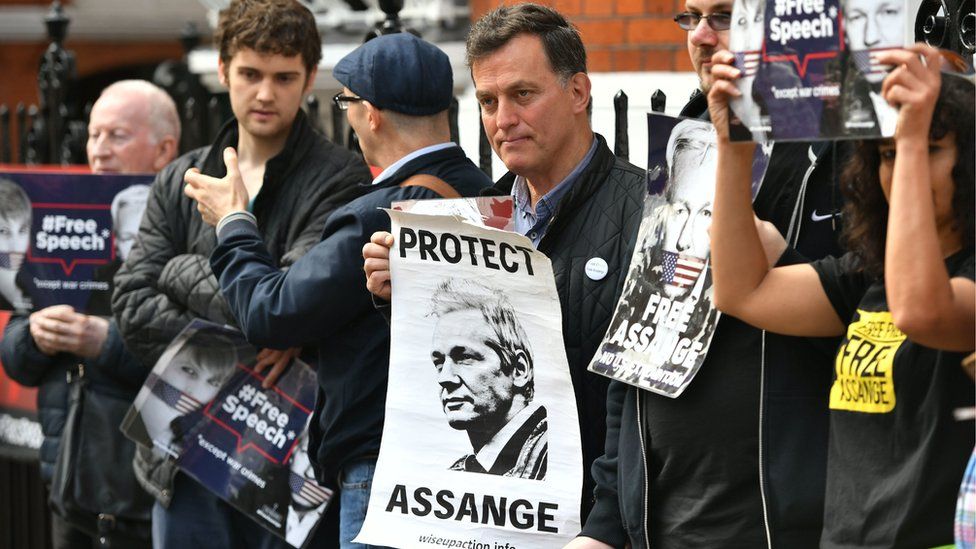Wikileaks: Ecuador ‘to hand’ Assange belongings to US
- Published

Ecuador has seized some of Wikileaks co-founder Julian Assange's possessions left behind following his stay in its London embassy.
An Ecuadorean judge authorised the seizure after a request for assistance by the US.
Wikileaks said Ecuador was allowing US prosecutors to "help themselves to Assange's belongings".
The material includes manuscripts, legal papers, medical records and electronic equipment, Wikileaks said.
Mr Assange's lawyer called it "completely unprecedented in the history of asylum".
"Ecuador is committing a flagrant violation of the most basic norms of the institution of asylum by handing over all the asylee's personal belongings indiscriminately to the country that he was being protected from," added lawyer Aitor Martinez.
Foreign Minister José Valencia said last week that the decision which items to share with US authorities should be taken by the Ecuadorean prosecutor's office and that any handover would be carried out "in full compliance with the law".
Wikileaks' Editor-in-Chief, Kristinn Hrafnsson, said in a statement that there was "no doubt that Ecuador has tampered with the belongings it will send to the United States".
The US is seeking Assange's extradition from the UK over his alleged role in the release of classified military and diplomatic material by Wikileaks in 2010.
Australian-born Assange faces a charge of conspiracy to commit computer intrusion in the US. He is accused of participating in one of the largest ever leaks of government secrets, which could result in a prison term of up to five years.
The 47-year-old whistleblower is already facing moves to extradite him to Sweden.
In 2010, a Swedish woman accused him of rape after they met at a WikiLeaks conference in Stockholm. Assange has always denied the allegations, and sought refuge in Ecuador's embassy for seven years to avoid a British extradition order to Sweden.
Julian Assange being dragged from the Ecuadorean embassy in London
The charges were dropped in 2017, but on Monday prosecutors issued a renewed request to hold Mr Assange on suspicion of rape - a first step towards seeking his extradition.
Swedish deputy director of public prosecutions, Eva-Marie Persson, said in a statement a request had been filed with the Uppsala district court to have Assange detained in his absence.
She added that once the court had granted the request, she would then ask British authorities to transfer Assange to Sweden.
Mr Assange was arrested on 11 April after being handed over to British authorities by Ecuador. He is serving a 50-week sentence in Belmarsh prison for skipping his extradition order.
Correction 21 May 2019: A previous version of this article stated that Julian Assange's possessions had been handed over to the US. This has been amended to clarify that they have been seized by the Ecuadorean authorities following a US request.
Correction 4th June 2019: This article has been amended to remove a reference to "rape charges".
- Published2 May 2019
- Published12 April 2019